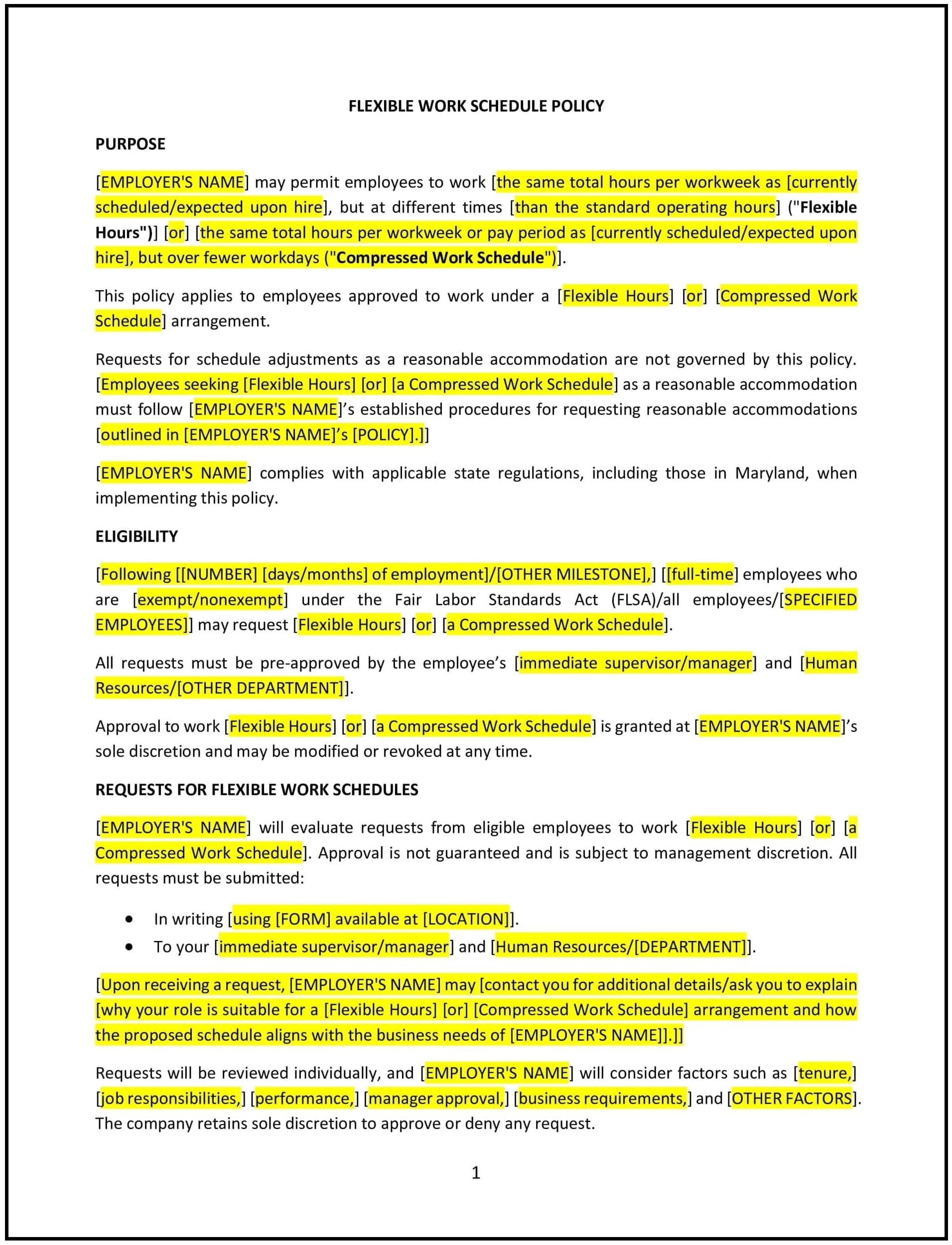Flexible work schedule policy (Maryland): Free template
Got contracts to review? While you're here for policies, let Cobrief make contract review effortless—start your free review now.

Customize this template for free
Flexible work schedule policy (Maryland)
This flexible work schedule policy is designed to help Maryland businesses provide employees with alternative work arrangements to balance personal responsibilities and workplace productivity. It outlines guidelines for implementing flexible schedules, including eligibility, approval processes, and expectations.
By adopting this policy, Maryland businesses can enhance employee satisfaction, improve retention, and maintain operational efficiency.
How to use this flexible work schedule policy (Maryland)
- Define flexible arrangements: Specify the types of schedules available, such as compressed workweeks, staggered hours, or remote work options.
- Identify eligibility criteria: Clarify which employees or roles qualify for flexible scheduling, considering job duties and business needs.
- Establish request procedures: Detail how employees can request a flexible schedule, including required documentation and notice periods.
- Outline approval processes: Specify the steps for evaluating and approving requests, including managerial reviews and business impact assessments.
- Set expectations: Emphasize performance, communication, and availability requirements for employees on flexible schedules.
- Include a trial period: Allow for an initial trial period to assess the feasibility and effectiveness of the arrangement.
- Reflect Maryland-specific considerations: Address any state-specific laws or practices that may influence flexible work arrangements.
Benefits of using this flexible work schedule policy (Maryland)
Implementing this policy provides Maryland businesses with several advantages:
- Enhances employee satisfaction: Offers employees greater control over their schedules, improving morale and work-life balance.
- Boosts retention: Demonstrates a commitment to accommodating employee needs, reducing turnover.
- Increases productivity: Encourages employees to work during their most productive hours while meeting business goals.
- Reduces absenteeism: Helps employees manage personal responsibilities without resorting to unscheduled absences.
- Aligns with Maryland trends: Reflects local workforce preferences and evolving workplace norms.
Tips for using this flexible work schedule policy (Maryland)
- Communicate options: Clearly outline available flexible scheduling arrangements to employees.
- Train managers: Equip supervisors to handle requests fairly and balance employee needs with business priorities.
- Monitor outcomes: Regularly assess the impact of flexible schedules on productivity and employee satisfaction.
- Maintain consistency: Apply the policy uniformly to ensure fairness and transparency.
- Stay updated: Reflect changes in Maryland labor laws or workplace practices in the policy.